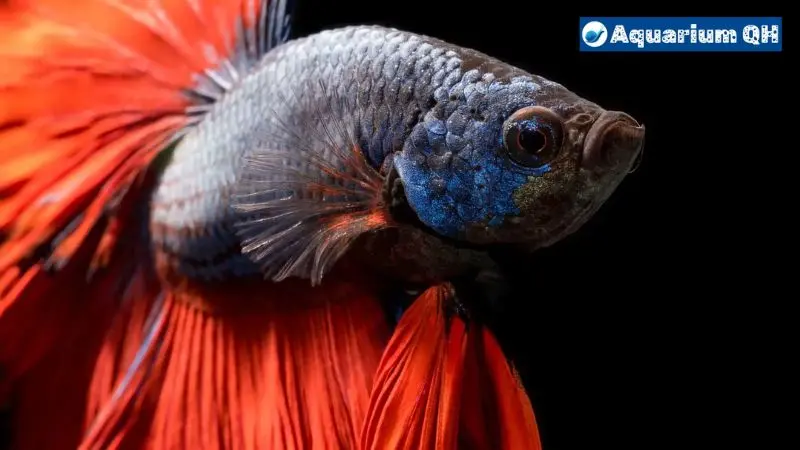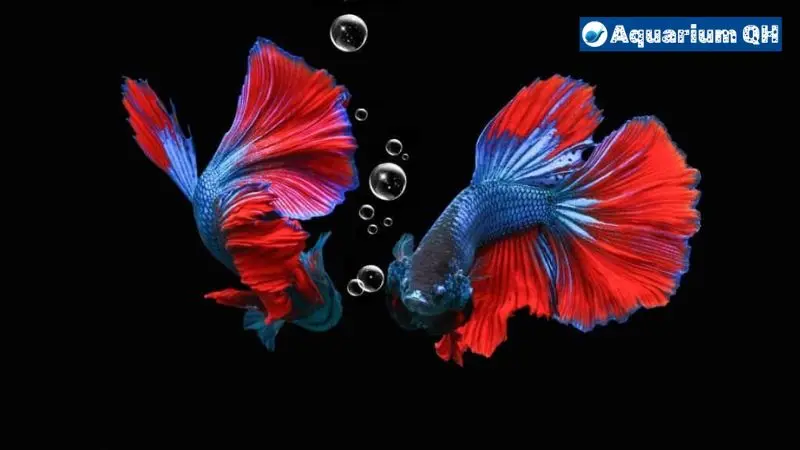Hole in head betta, also known as lateral line erosion or head and lateral line erosion (HLLE), is a perplexing condition that often leaves fish enthusiasts scratching their heads. In this comprehensive guide, we delve deep into the intricacies of hole in head betta, exploring its causes, symptoms, treatments, and preventive measures.
By the end of this Aquarium QH‘s article, you’ll have a clearer understanding of how to identify, manage, and potentially prevent this condition, ensuring the optimal health and well-being of your beloved bettas.
Understanding Hole in Head Betta
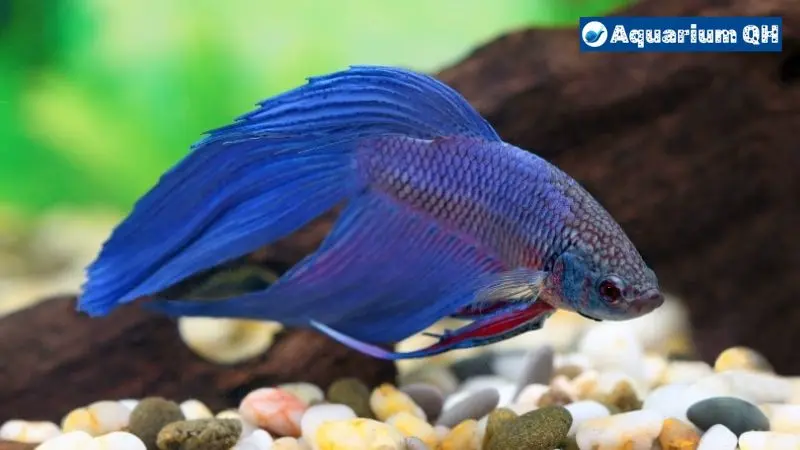
Hole in head betta, as the name suggests, manifests as small holes or lesions typically around the head and along the lateral line of the fish. This condition primarily affects freshwater fish species, including bettas, and can be attributed to various factors such as poor water quality, nutritional deficiencies, parasitic infections, and environmental stressors.
Identifying Symptoms
Symptoms of hole in head betta may vary but commonly include:
- Visible Lesions: Small pits or craters on the head or along the lateral line.
- Lethargy: Decreased activity levels and overall sluggishness.
- Loss of Appetite: Betta fish may show disinterest in food.
- Rubbing Against Objects: Fish may rub their bodies against tank décor.
Causes of Hole in Head Betta
Understanding the underlying causes is crucial for effective management of hole in head betta. Some common contributors include:
Poor Water Quality
Inadequate water conditions, such as high ammonia or nitrate levels, can stress fish and weaken their immune systems, making them more susceptible to diseases like hole in head.
Nutritional Deficiencies
A lack of essential vitamins and minerals in the diet can compromise the overall health of bettas, potentially leading to the development of hole in head.
Parasitic Infections
Certain parasites, such as Hexamita, have been implicated in the development of hole in head betta. These parasites can wreak havoc on the digestive system, causing erosive lesions and other health issues.
Environmental Stressors
Factors like overcrowding, improper tank décor, and abrupt changes in water parameters can induce stress in bettas, making them more vulnerable to diseases like hole in head.
Treatment Options
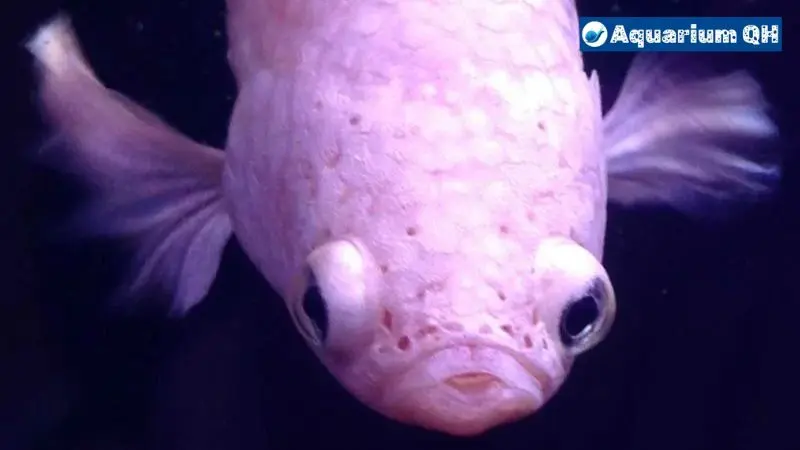
Managing hole in head betta requires a multi-faceted approach aimed at addressing the underlying causes and alleviating symptoms. Some effective treatment options include:
- Water Quality Management: Regular water changes and maintenance can help improve water quality and reduce stress on bettas.
- Nutritional Supplements: Providing a balanced diet enriched with essential vitamins and minerals can support betta health and aid in recovery.
- Medication: Depending on the severity of the condition, your vet may prescribe medications to combat parasitic infections or bacterial growth.
- Stress Reduction: Creating a calm and comfortable environment for bettas can help reduce stress and promote healing.
Preventive Measures
Prevention is always better than cure when it comes to hole in head betta. Implementing the following measures can help minimize the risk of your fish developing this condition:
- Maintain Optimal Water Parameters: Regularly test and monitor water parameters to ensure they fall within the ideal range for bettas.
- Provide a Balanced Diet: Offer a varied diet consisting of high-quality pellets, live or frozen foods, and occasional treats to meet your betta’s nutritional needs.
- Avoid Overcrowding: Keep bettas in adequately sized tanks with appropriate tank mates to prevent stress and aggression.
- Quarantine New Fish: Always quarantine new additions to your aquarium to prevent the introduction of parasites or diseases.
FAQs (Frequently Asked Questions)
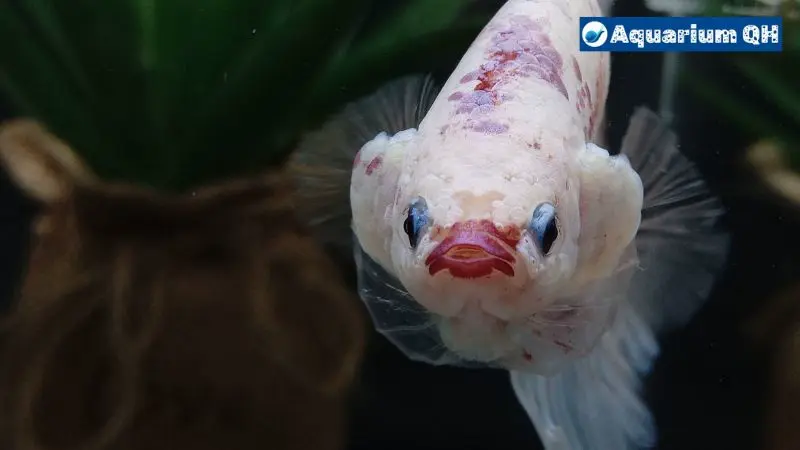
Q: Can hole in head betta be cured? A: With prompt intervention and proper care, many bettas recover from hole in head. However, severe cases may require ongoing management and monitoring.
Q: What should I feed a betta with hole in head? A: Offer a nutritious diet rich in protein and fortified with vitamins and minerals to support healing and overall health.
Q: Is hole in head betta contagious to other fish? A: While hole in head itself is not contagious, underlying factors such as poor water quality or parasitic infections can affect other fish in the aquarium.
Q: How can I prevent hole in head betta? A: Focus on maintaining pristine water conditions, providing a balanced diet, minimizing stressors, and practicing good aquarium hygiene.
Q: Can stress cause hole in head betta? A: Yes, stress is a significant contributing factor to the development of hole in head. Ensuring a calm and stable environment is essential for betta health.
Q: Should I isolate a betta with hole in head? A: Depending on the severity of the condition and the presence of other tank mates, isolating the affected betta may be beneficial to prevent further stress and potential spread of disease.
Conclusion
In conclusion, hole in head betta is a complex condition that requires careful attention and proactive management. By understanding the causes, symptoms, treatments, and preventive measures outlined in this guide, you can empower yourself to provide the best possible care for your bettas, ensuring they thrive in a healthy and harmonious environment.

